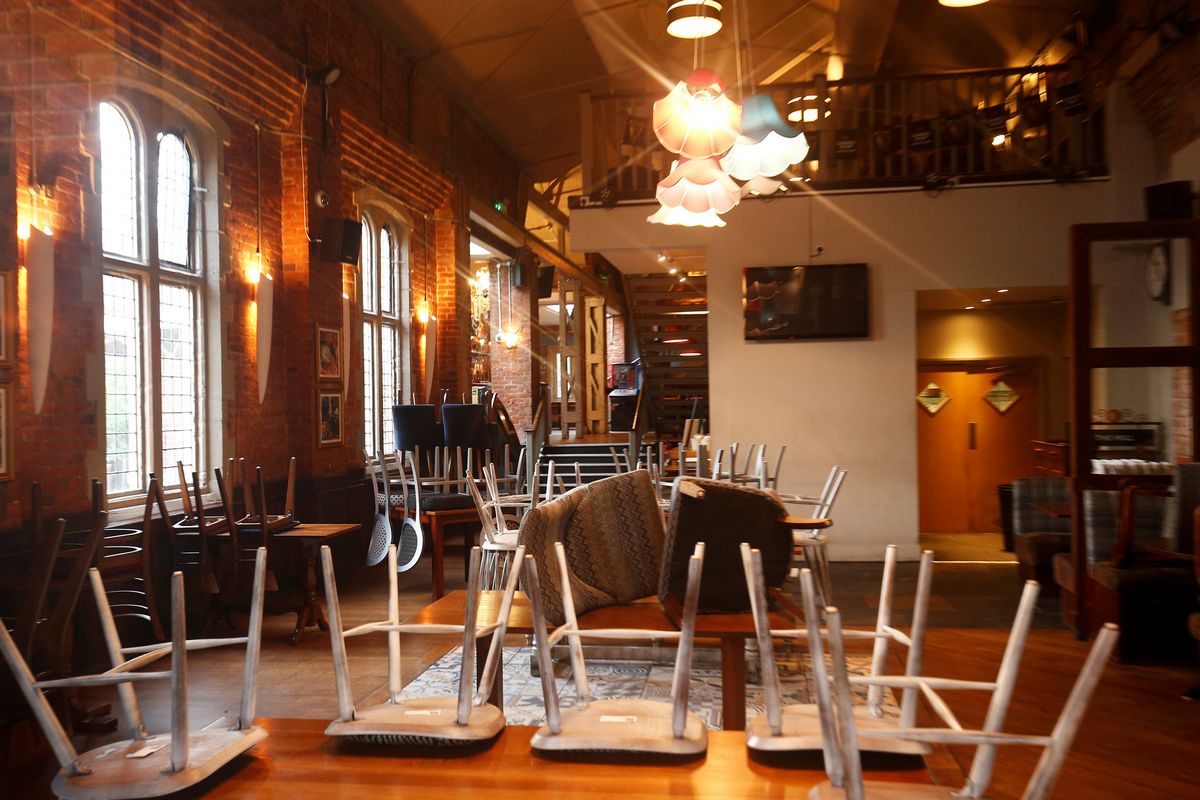Why You Should Toss Those Jeans After Visiting Salisbury’s Zizzi & Mill Pub
Back in March, a tense incident involving former Russian spy Sergei Skripal and his daughter Yulia shook the quiet city of Salisbury. After they were found out cold in the cathedral city’s streets, authorities discovered that traces of a nerve‑agent had somehow made its way to two popular local spots: the Zizzi restaurant and the Mill Pub. Fast forward a day, and the Public Health department issued a gentle but firm reminder to everyone who minded that:
Wash, Wash, Wash!
- Washing clothes could wipe out any lingering “nano‑bits” of the nerve agent.
- Wipe down phones and personal stuff—just to be extra sure no prankster residue stays on your skin.
- No immediate health dangers have been confirmed, but safety comes first.
Sergei Skripal, 66, and his daughter, skeptical after the shock, are still in the hospital’s intensive care unit,
but are described as being in a “critical yet stable” condition. According to Sally Davies, a senior medical officer, the good news is that those who dined at the venues on March 4th or 5th have not suffered harm. Still, the recommendation stands: clean your clothing and give your cell a quick wipe‑down.
Police and the Mystery of the Agent
British police, who initially responded to the Skripal case, confirmed that a nerve agent was indeed used—though the exact chemical remains hush‑hush. The appointed officer, who survived the incident with a stable but serious condition, assured the public that investigative teams are on the case.
Keeping Calm & Staying Clean
So, next time you’re about to stroll into a Salisbury restaurant, breeze through a pub, or imagine a quiet English street, remember that a small amount of nerve‑agent, while a real concern, can be handled effectively with solid hygiene habits.

What It All Means: A Tiny Risk, Big Relief
After the incident at the bustling Zizzi eatery and its nearby pub, authorities are putting the situation into perspective. The takeaway? The public is safe, and the potential danger is barely a whisper.
Public Health England’s Take
Public Health England (PHE) weighed fresh data before spilling the beans on Sunday. Deputy medical director Jenny Harries got down to the nitty‑gritty:
- For most folks in the area, the chance of picking up any leftover contamination is tiny.
- It’s not a “one‑day risk” story. The real worry is whether a lingering threat could pile up over time.
PHE’s message? “Let’s stay calm. There’s no immediate danger, and there’s no ongoing risk. Breathe easy.”
What’s Happening on the Ground
- Security fences still guard the restaurant and the pub on Sunday, but police haven’t pinned down a detour length.
- Soldiers in protective gear—complete with gas masks—swept through a local car park, hauling away vehicles and other contraband.
- Some items from Zizzi, like a table, have been removed and destroyed per BBC reports.
So, what does this all add up to?
Bottom Line
Counterfeit risk? Absolutely zero. Official risk? Practically nonexistent. Bring back your appetite and that beloved coffee—everything’s good to go.
Keep it up, folks. The risk curve is flattening and the authorities are on top of it. Stay safe, stay sharp, and keep enjoying your meals without a worrisome sniff.

Local Residents Voice Worries Over Contamination Alerts
After a batch of warnings popped up for folks who’d visited certain spots, the town’s usual chatter turned into a nervous buzz. Residents felt a chill on the breeze as they wondered whether they’d be safe carrying their daily grind.
Only One Witness: Phil Burt, Dog Walker Extraordinaire
- Phil Burt: “It’s worried a lot of people,” he admits, balancing a leash that’s probably shaken more than the town’s routine. “This town is usually packed on a Sunday, but I think a lot of people are just staying away.”
Even the usually bustling streets have become surprisingly quiet—just like a Sunday morning in a city that’s decided to play it safe.
Parliament’s Rolling–Eyes Commentary
With speculation swirling in Britain’s political circles, a rumour has it that Russia might be tied to the Skripal sting. Interior Secretary Amber Rudd shrugged on Saturday, letting everybody know it’s too early to sing the “who’s culprit” tune.
Below, the plays of “past terrorists” played out like a rerun: “Skripal betrayed dozens of Russian agents to British intelligence before his arrest in Moscow in 2004, leading to a 13‑year prison sentence in 2006. In 2010, he traded in his prison life for a passport in Britain after a Russian spy swap.”
Finance Minister Philip Hammond on “Appropriate” Response
“This is a police investigation and it will be evidence‑led and we must go where the evidence takes us,” Hammond boomed while addressing BBC television—the blue‑blanket, gun‑sounding voices of the nation. Then, a dash of seriousness followed: “So we have to allow the police investigation to run its course. But if there were to be an involvement of a foreign state evidenced by this investigation, then obviously that would be very serious indeed and the government would respond appropriately.”
In short: if the evidence points to a foreign hand, the British government will pull down the firehose without hesitation.




